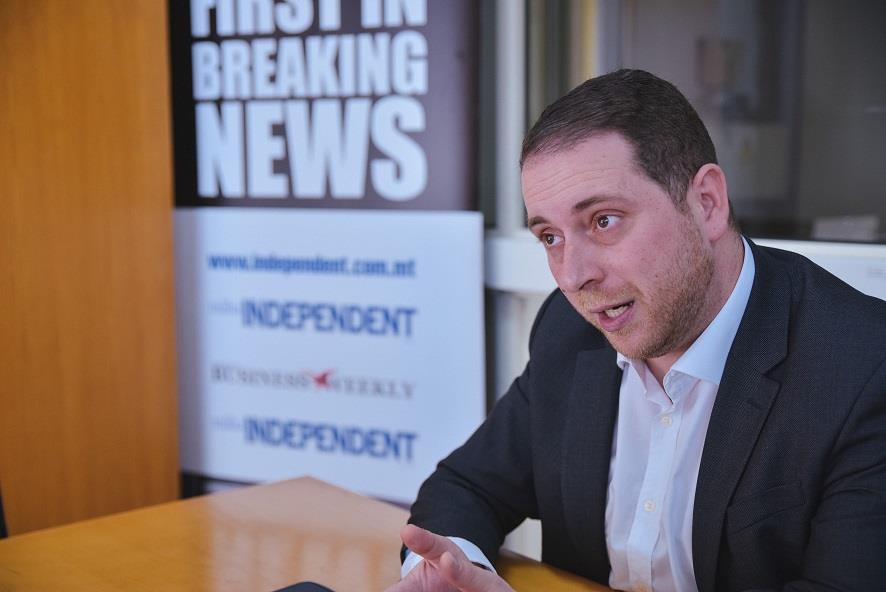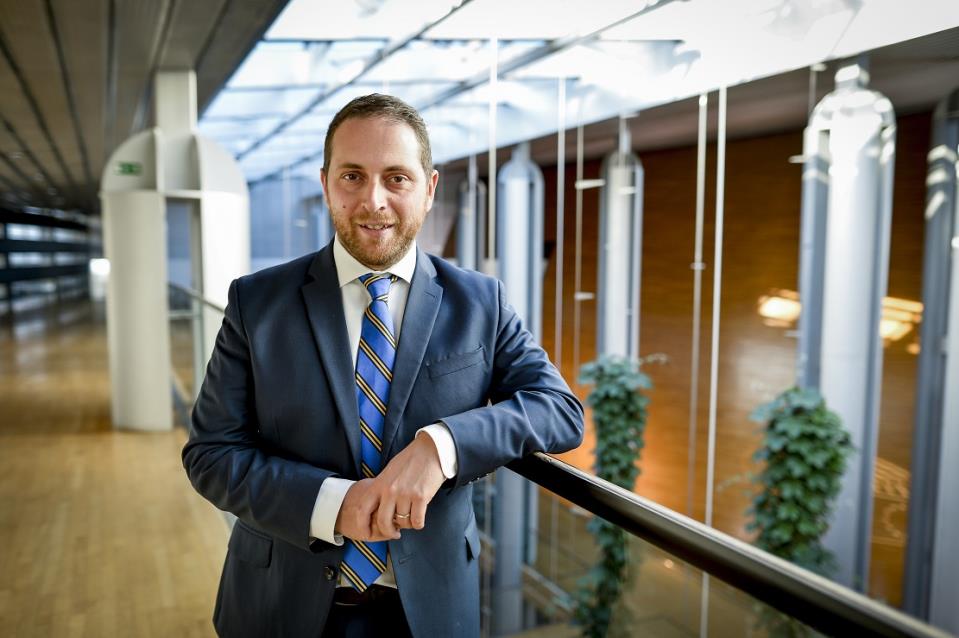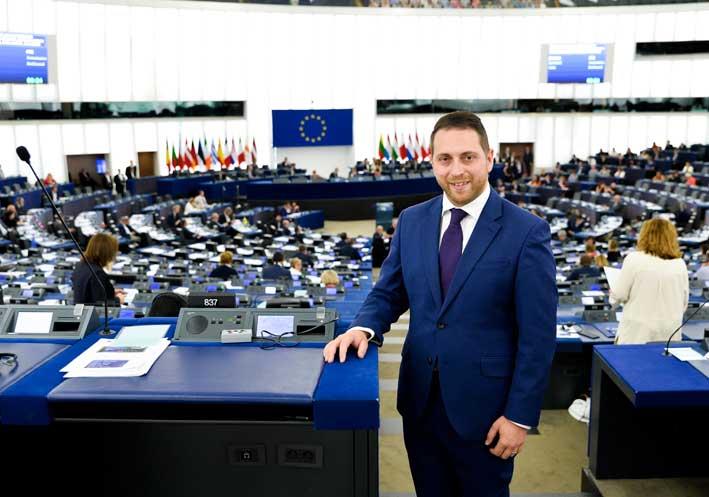National level
Malta’s reputation has been a recurring topic of discussion among Members of the European Parliament, with many calling for specific changes and reforms in order for our country to recover from the political crisis that put us in such a precarious situation.
Agius Saliba was asked if he has seen a change in the barrage of criticism that Malta received from other EU member states.
“There has been a huge shift from the situation last November and December to the developments that followed after January,” he said. “I am not saying that we can be laissez-faire and that the problems have been fixed, because there are a lot of things that still need to be done. However, I have had discussions with a number of MEPs, even outside the Socialist and Democratic group. They are following the situation closely and a lot of the new decisions being made, such as the restructuring of the way the Commissioner of Police is appointed, have been recognised.”
Having said this, he explained that until Malta implements all the recommendations it has been given in their entirety, the country will continue feeling the pressure from the EP, the MEPs, the European Commission and the European Council.
What worries Agius Saliba is that while the government has agreed to make these changes, the opposition is not willing to co-operate and most of the changes require two-thirds in favour.
He pointed out that there is no contact at all between Labour MEPs and Nationalist MEPS, which he finds embarrassing. “I get jealous when I look at the delegations of other member states, which are spread across five or six political parties, and see them working as a team in order to achieve what is best for their country.”
This lack of communication makes it impossible to manage all the committees in the EU parliament – around 15 in total with sub-committees being added – considering the small size of the delegation.
The Malta Independent on Sunday also asked Agius Saliba on the effects that Malta’s socio-economic growth will be having on the funding we receive from the EU Cohesion Fund.

Photos above Alenka Falzon
Agius Saliba explained that, every seven years, the framework of the EU’s budget changes and with the increase in the number of ambitious projects that did not exist seven years ago – when the Multiannual Financial Framework (MFF) was being discussed – the demand for funds from all member states is always increasing.
He said that, considering Malta’s socio-economic growth, it is obvious that we may face some setbacks with regard to the Cohesion Fund but it is important to make sure that if this happens, certain sectors such as agriculture and research and innovation are put in the spotlight as they may need more help in that respect.
“The Common Agricultural Policy only considers those who have large plots of land so, at European level, these funds are not touching those farmers who genuinely need them. As a country, this is what we have to focus on: if we lose anything from the cohesion fund – as nothing has been decided but things are looking positive – we tackle the problems we have been facing for a long time so that they are addressed.”
In the light of his recent election as Vice-President of the Hunting Intergroup of the EP, this newsroom also asked Agius Saliba about his perspective on the highly criticised lack of enforcement regarding the illegal hunting and trapping that takes place in Malta.
“I have criticised the European Commission for any negative comments made about the Maltese hunters as eroding ecosystems on a European level,” he said. “I believe that, with regard to illegal hunting and lack of enforcement, the authorities should remain strict in their monitoring. However, I do not agree that regulations involving species that can be hunted should continue being restricted.”

He argued that, due to such rigid restrictions, it is only natural for young hunters to opt for illegal practices because extremism is not applicable anywhere. “This is why it is crucial for the government – and I will be vociferous on this subject – to find a remedy that, while abiding by legal practices, will open up the hunting and trapping season for the coming October.”
He emphasised the importance of finding a balance because it is easy for the Commission to put a lot of pressure on our country in this respect because our small size makes illegalities more easily visible, whereas illegalities in larger countries, such as France, are not addressed.
“If the EU is to work from the perspective of sustainability, it needs to spread its attention across all countries,” he said, while pointing out that this intergroup speaks not only of hunting but also of environmental sustainability.
“If you do not have a sustainable environment, birds will not migrate to your country and if this happens, hunting and trapping are going to suffer. Most of the time, numbers are falling – not because of hunting and trapping but due to the lack of sustainable planning in our country. These are things that are not spoken about or given importance and I think it is unreasonable that the Commission does not address them.”
This newsroom also touched on a prominent and ever-growing issue in our country – the influx of migrants and immigrants, which is something on which Agius Saliba himself had raised concern at a European level.
He explained that, as an MEP, he will continue emphasising the limited amount of space that Malta has due to its size since, while it is willing to take on what it can handle, the line cannot be crossed. “Breaching that threshold leads to the realities that we face today, with communities such as Marsa, Birżebbuġa and Ħamrun feeling invaded which, unavoidably, leads to a sense of discomfort that we label ‘racism’.”
He added that, at a European level, things have not changed one bit as no solution has been found, even though the EU has been talking about this issue for the past 10 years.
“The biggest problem the EU is facing is that of credibility,” he said. “If the European Commission does not use the same iron fist when it comes to migration as it does in respect of other sectors, any proposals and recommendations it makes will always lack credibility.
“The political will for the distribution of the weight of the situation exists in the majority of the EP. However, when it comes to putting words into actions, it is the remit of the Commission to change the competence of countries that have closed their doors and left others, such as Malta, to take on more than they can handle.”
He explained that this situation has an impact not only on those living in the receiving country, but also on the migrants themselves – who have to face discrimination despite leaving their own country in search of a better life.

European Level
Agius Saliba connected migration with the Cotonou Trade Agreement that will expire this year and the fact that the Political Committee in the ACP-EU Joint Parliamentary Assembly, which he chairs, is communicating with the Commission for its renewal.
“In Africa, there are a lot of areas that are at the root of the irregular immigration issue in the EU,” he explained.
A great deal of investment is going towards helping these regions so that citizens are able to continue living in their home countries but Agius Saliba believes that a strategy is needed so that these countries do not get only short-term satisfaction but are also able to sustain themselves in the long-term.
“The projects which are being financed by EU funds for this agreement need to be more understandable and create more opportunities for school and work for migrants who are running away from their country and thus increase their quality of life.”
Additionally, there needs to be more bilateral communication with certain countries which will strengthen the relationship between them and the EU.
He believes that: “If we don’t resolve the issue at its root – the fact that they are running away from these realities in their countries – we cannot truly resolve the issue of irregular immigration at a European level.”

Agius Saliba is also the co-Chair of the EP Intergroup MEP Alliance for Mental Health where he is promoting more attention for mental health at a European level.
“We are faced with a situation where we have a major mental health problem at an EU level and there is no Mental Health Strategy to support it,” he explained, while emphasising that most politicians simply mention it in their election campaigns but never really do anything about it as the current Health Commissioner has done.
“An initiative such as the Right to Disconnect is needed to shed light on the importance that needs to be given to mental health at a European level.”
Earlier this month, Agius Saliba was appointed rapporteur of the Right to Disconnect on which the Employment Committee in the EP had decided to draft a legislative own-initiative report to propose its legislation regarding the right to disconnect.
He explained that a lot of workers feel obliged to stay connected in order to maintain their reputation at work but there needs to be a change in this mentality as it can be a detriment to mental health.
He believes that this is a golden opportunity, as there seems to have been a shift in the European Commission that was resisting at first, so an initiative like this will shed light on mental health at a European level as it is being left on the back-burner.
On a separate note, this newsroom asked Agius Saliba to elaborate on The Digital Services Act (DSA) which had put his name on the Politico list for the top 20 MEPs to watch in 2020.

“The DSA promotes a safer environment for our consumers, including the regulation of digital online platforms,” he explained. “These days we are living in a situation where, at EU level, we have legislation on which I will be working directly – the E-Commerce Directive. This is a 20-year-old regulatory framework that regulates liability for digital transactions.”
He explained that this Directive requires revising as the EU is still using it to regulate the online market that is growing day by day. This has resulted in an endless cycle of patchwork that tries to fix problems for which it does not cater.
“The latest EU statistics show that the clinical products – such as medicine and make-up that we buy online – are all counterfeit. A total of 45 per cent of all make-up products are not up to the standards of the health and safety levels recommended by the EU. And yet we find ourselves in a situation where the online market places on which one can find these products are not liable as they are working on American-based legislation wherein they simply act as intermediaries between seller and buyer,” he explained.
“Our idea is for there to be more responsibility at a European level when it comes to online platforms and this concerns not only commerce but also social media and even news.”
When asked if he thought such a regulation would be a detriment to Freedom of Expression he said this would be the most challenging part. “There has been a lot of discussion in the EU, such as the Copyright Directive. This is a more horizontal process wherein we do not want to regulate speech per se as what might be illegal in Malta could be legal in other EU member states. We just want to reach the point where people take responsibility on the part of the consumer for illegal or harmful content, thus ensuring more consumer protection and more certainty for business.”